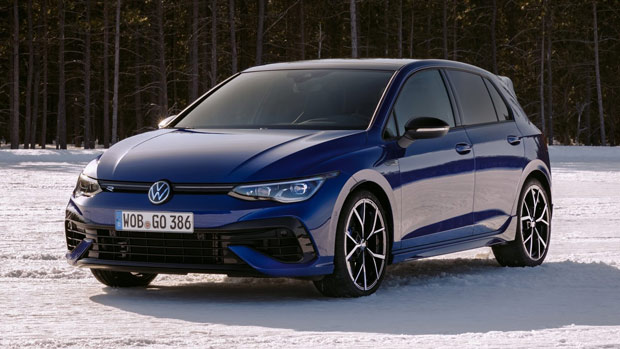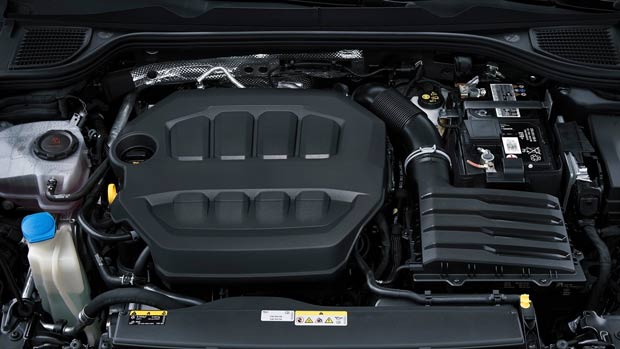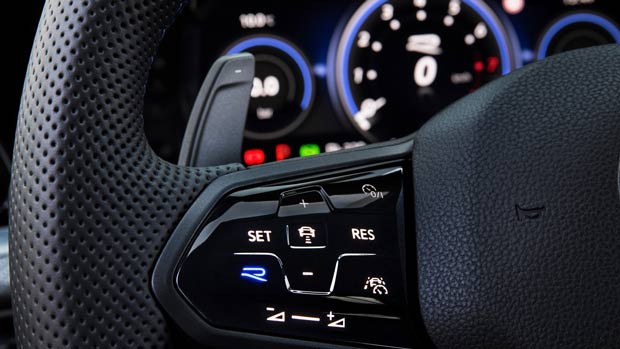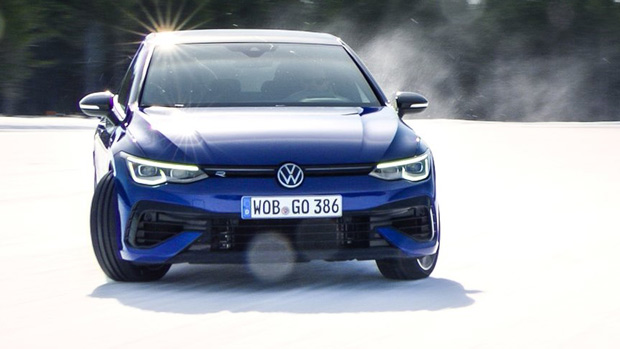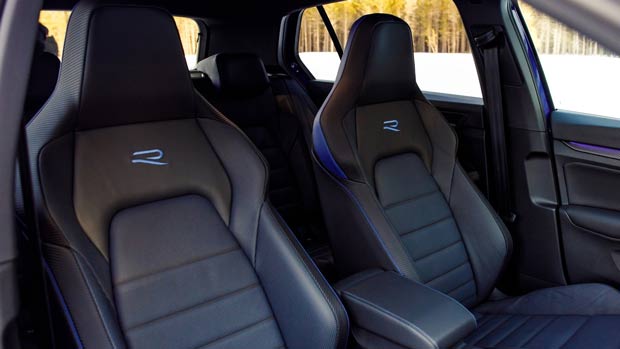-
Car Reviews
- All reviews
- Midsize SUVs
- Small cars
- Utes
- Small SUVs
- Large SUVs
- Large cars
- Sports SUVs
- Sports cars
- Vans
Latest reviews
- Car News
-
Car Comparisons
Latest comparisons
- Chasing Deals
A significant price leap is in store for the Mk 8 version of the Volkswagen Golf R – though loaded specifications help justify prices
Volkswagen Australia says 2022 will be “the year of the R” and kicks off with the eagerly-anticipated Golf R and Golf R wagon in April 2022.
Order books are open for the most extreme all-wheel-drive version of the eighth-generation Golf, but price rises are significant over the previous 7.5-gen Golf R.
The 2022 Golf R hatch is $66,990 and the Golf R wagon $69,990 before on-road costs.
Early in 2021 you could buy the 7.5 Golf R hatch for $55,990 ($57,990 in Final Edition guise) and the wagon for $57,990.
VW Australia hopes the new R’s jump in performance, technology and equipment will help justify the significant price hikes.
The model’s EA888 2.0-litre four-cylinder turbo petrol offers an additional 22kW in both body styles, but there is a notable difference in the technical specifications of the engines used in the hatchback and wagon that sees the estate car make 5 percent more torque.
A desire to expedite production of the Golf R hatch for Australian customers saw Volkswagen’s local representation strike a last-minute deal with the German factory to fit a version of the EA888 engine that runs without a petrol particulate filter.
Outputs for this EA888 variant sit at 235kW of power – the same as the wagon – but torque is capped at 400Nm versus 420Nm for the estate.
The Golf R wagon is only capable of being built in Mk 8 form with a petrol particulate filter. Production commences later on the wagon but deliveries in April 2022 are still expected.
A consequence of the decision to de-specify the petrol particulate filter from the hatchback – and the resulting small decrease in torque – saw Volkswagen Australia reduce the planned price from $67,990 to $66,990
before on-road costs.
The higher price had not yet been announced to the public when the change was put into effect.
As we’ve previously reported, the shared 235kW power figure means, for the first time, Australian Rs get the same higher state of tune seen in European models.
It also sees the VW out-power all-paw rivals such as the Mercedes-AMG A35 (225kW/400Nm), Audi S3 (228kW/400Nm) and BMW M135i (225kW/450Nm).
The 0-100km/h sprint drops to 4.7-seconds in the Golf R hatch and 4.9-seconds for the Golf R wagon.
The hot VW’s turbo-four is mated exclusively (sorry, three-pedal fans) to a seven-speed wet clutch DSG, now with larger steering wheel paddles.
An ‘R’ button on the steering wheel changes driving profiles: a firm press sends the driver straight into Race mode.
There are two extra driving profiles available in Race mode: Nurburgring profile (for those weekends away at the Nordschleife) and Drift profile, where 100 percent of rear torque can be sent to a single wheel. It’s
getting easier to be a hero…
There’s adaptive chassis control and a reworked 4Motion all-wheel-drive system with R-Performance Torque Vectoring, able to distribute power between not only the front and rear ends, but also – allowing that Drift
mode – between the two rear wheels.
A beefier braking system – previously only used on the Mk 7.5 Golf R Performance Edition and GTI TCR – is standard on the new Rs.
Other changes include an extended rear roof spoiler and 19-inch Estoril lightweight alloy wheels, which replace the Pretoria versions of before.
Formerly the reserve of R Performance Pack buyers, Estorils are now standard fit.
At the price VW is asking, buyers can rightly expect a luxurious and spec-rich cabin. Nappa leather covering bolstered sports seats is a good start; they’re electric, memory and heated and feature integrated headrests.
Other standard goodies include IQ Drive bringing Travel Assist and Park Assist semi-autonomous tech; IQ matrix LED headlights; scrolling indicators; Digital Cockpit Pro digital dashboard; 10-inch Discover Pro infotainment screen; wireless Apple CarPlay and wireless Android Auto; harman kardon premium audio and a head-up display.
It’s 20 years since the birth of R, the European-released Golf Mk4 R32 kicking things off back in 2002. Its 3.2-litre VR6 six-cylinder offered 177kW and a 0-100km/h time of 6.4-seconds, showing the progress made over two decades with two less cylinders and turbocharging.
Additional reporting by Tom Baker
Latest news
About Chasing cars
Chasing Cars reviews are 100% independent.
Because we are powered by Budget Direct Insurance, we don’t receive advertising or sales revenue from car manufacturers.
We’re truly independent – giving you Australia’s best car reviews.
